|
We know customer’s aren’t always right. Yet, how come in insurance claims, property restoration, and construction projects we perpetuate this mantra of, “Do right by the customer”? In Episode 116 of The DYOJO Podcast we will review whether this mindset leads to the positive project outcomes that all parties are looking for. In Episode 116 of The DYOJO Podcast 0:00 The customer isn't always right 1:32 Restoration contractor convention 2:45 Do right by the customer - construction scope of work 8:18 Making the impossible possible 13:40 Do right by the customer - insurance scope of work 16:51 Who knows the most 19:39 Thinking differently about the project management role 21:22 Construction cost disputes Clips were used in this Episode from * The RIA Martin L King Award introduction video * Scott Seiss Comedy * Due South Inspections / Due South Brad * 100 TDP Matching Materials for Insurance Claims * Let The Structure Speak by Jon Isaacson (C&R Magazine) LAST EPISODE TDP 115 Property Restoration and Insurance Claim Contractors Convention NEXT EPISODE Join us as we discuss hard construction lessons learned from a failed nuclear power plant in Elma, Washington. AND we will discuss some unique perspectives on recruiting, hiring, and developing professionals for the construction project management role. Thursdays are for The DYOJO Podcast - helping contractors shorten their DANG learning curve. Join host Jon Isaacson as we explore contractor stories, experiences, and best practices to help listeners thrive in the skilled trades.
MUSIC Theme - It's Only Worth It If You Work For It by NEFFEX Cool Revenge - Jeremy Blake
0 Comments
In this episode of The DYOJO Podcast we share tips for making the most of the Restoration Industry Association (RIA) annual convention and expo. This year it will be in Dallas, Texas, April 8 - 10, 2024. Watch and listen for several Passport Stops that will help you elevate your mindsets and habits as a contractor specializing with insurance claims and disaster recovery In Episode 115 of The DYOJO Podcast 0:00 Industry Issues & Drama 4:48 Passport #1 9:57 Passport #3 14:07 The DYOJO Audiobooks 16:37 Passport #4 19:12 Passport #5 20:57 Passport #6 23:34 Passport #8 26:20 Property Restoration History 31:53 Passport #11 Clips were used in this Episode from * The RIA Martin L King Award introduction video * Several prior episodes of The DYOJO Podcast Articles Cited Include * A Brief Walk Through RIA History by Michelle Blevins (R&R Magazine) * Founding Fathers of Restoration by Pete Consigli (RIA Website, C&R Magazine) * Restoration’s History and the Modern Restorer by Jon Isaacson and Pete Consigli (Cleanfax Magazine) LAST EPISODE TDP 114 No One Wants to Work NEXT EPISODE Join us as we discuss hard construction lessons learned from a failed nuclear power plant in Elma, Washington Thursdays are for The DYOJO Podcast - helping contractors shorten their DANG learning curve. Join host Jon Isaacson as we explore contractor stories, experiences, and best practices to help listeners thrive in the skilled trades.
MUSIC Theme - It's Only Worth It If You Work For It by NEFFEX Pete Consigli makes Downey Guest of Honor at the Winter Break Banquet & Networking Dinner on February 2nd, 2024. Press Release by Pete Consigli: e-mail: [email protected], phone: +1-813-758-2801 Industry Icon John Downey announced his retirement at Restoration Winter Break held at the Fairfield Inn by Marriott in Bonita Springs Florida from February 1 to 3, 2024. Winter Break Host and Conference Facilitator Pete Consigli made John Downey the guest of honor at the Winter Break Banquet and Networking Dinner on February 2nd, held at DeRomos La Fontana Banquet Room in the Bonita Bay Promenade in Bonita Springs. Downey addressed the Winter Break Banquet delegates during the dessert and coffee service giving a heartfelt retirement message to his many friends and colleagues in attendance. John submitted his career biography (include below) which was printed in the Winter Break 2024 digital program in his final industry role as the lead moderator for the Winter Break 2024 Conference. The John Downey Story - IAQ RadioJohn Downey is a fourth-generation carpet cleaner who began his cleaning industry odyssey in 1973. He recently stepped down as chairman of the Cleaning Industry Research Institute (CIRI), a nonprofit cleaning science research organization. Downey has decided to make Winter Break 2024 his swan song. Briefly, over the course of his career Downey:
Downey’s decision to end his public career at this event is not an accident. It is an opportunity to step offstage at an event hosted by his good friend, colleague and fellow industry watchdog, Pete Consigli. Pete has been an advocate and a warrior on behalf of restorers since before there was a restoration industry. As a watchdog, he has ferociously policed the integrity of the restoration industry for decades, matched only by his friend and colleague, Cliff Zlotnik. Oh, and one more thing: Like Downey, when Consigli is cut he bleeds scarlet and gray! Historical Note: Ohio State's official school colors since 1878, Scarlet and Gray were chosen by a group of three students in a lecture room in University Hall because "it was a pleasing combination...and had not been adopted by any other college," noted selection committee member Alice Townshend Wing. Mr. Downey’s contact info: [email protected]. John Downey | President Downey’s Carpet Care of Granville www.johndowneyco.com (740) 587-4258 The Downey Story on IAQ Radio & Z-man Blog Restoration History PanelBusiness owners and managers complain about the lack of quality applicants and employees who won't stick around. We take a look at some examples of terrible job descriptions for ways construction professionals can better navigate the recruitment process. We will also review some clips of hilariously bad job interviews for ways modern businesses can better connect with young professionals. IN EPISODE 113 of THE DYOJO PODCAST:
Clips were used in this Episode from * Too Apree on YouTube * TDP 49 with Al Erisman, author of The ServiceMaster Story * P2T: Preparing 2 Thrive in the Modern Workplace (book) Chapter 5 LAST EPISODE TDP 112 Creating a Competitive Business Advantage in 2024 NEXT EPISODE Join us as we discuss hard construction lessons learned from a failed nuclear power plant in Elma, Washington. Thursdays are for The DYOJO Podcast - helping contractors shorten their DANG learning curve. Join host Jon Isaacson as we explore contractor stories, experiences, and best practices to help listeners thrive in the skilled trades. The job interview. If your interview habits are not helping your business achieve the goals of attracting, hiring, and retaining good talent, it's time to review the process. This text is from an excerpt from Episode 113 of The DYOJO Podcast. This blog discussion will benefit business owners, managers, parents, and educators as they look to understand and engage with young professionals. As our friend and fellow author, Tony Canas said in Episode 112, "You've got to show them [emerging professionals] a path to success." This content will also be a benefit to those aspiring professionals that maybe stumbled across this wonderful podcast to learn some tips on what current and future employers are looking for. Young professionals will receive valuable tips for
Emerging professionals don't just want a job, they want to find a place where they can grow and thrive. Our discussion extends to how new employees can set themselves up for those critical first 30, 60, and 90 days in a new job. Understanding how to achieve goals once a job has been acquired. New Book for Young ProfessionalsFor those of you reading, who are actually preparing for an interview, we will help you Prepare 2 Thrive. For those business owners, managers, parents, educators, you will want to share this information with young professionals preparing for interviews. What we discuss in this blog and the accompanying video will help job seekers stand out and thrive in a job interview. You'll recognize some of these tips from my latest book, P2T: Preparing 2 Thrive in the Modern Workplace. This book provides new hires with a path to success. This is resources for young pros book one. Tips for Thriving in a Job InterviewHere are the tips for thriving in a job interview that we share in P2T: Preparing 2 Thrive in the Modern Workplace
Read about these tips and many more in P2T: Preparing 2 Thrive in the Modern Workplace by Jon Isaacson. P2T: Chapter FiveThis blog and the accompanying video share Chapter Five: The Job Desription from my new book P2T: Preparing 2 Thrive in the Modern Workplace.
When a company writes a job description, they are giving applicants clues about what they are looking for. You shouldn’t have to dig too deep into the job description to find a few things that you understand and relate to the knowledge, experience, and abilities you have demonstrated in your life (see Chapter 12 for more on these Four Elements). What is the title of the position? If the title is something like entry-level customer service representative, what does this tell you? Entry-level usually means that they are hiring someone with little to no prior experience. Customer service can mean many things, but it usually requires the employees to interact directly with the public. Read what the listing says about a few key elements. Qualifications. This is where they tell you what prior knowledge, experience, and/or abilities they expect applicants to have. Roles and/or responsibilities. This is where they try to paint a picture of what applicants will be doing if they get hired. Compensation. Some organizations will tell you what the salary or hourly wage range is, and others will not. You will want to try to determine if the qualifications are required or recommended. For example, the employer may prefer that you have an Associates Degree (AA/AS) but they don’t require it. Even if they say they require a degree, you may roll the dice and apply anyway. What experiences do you have that are relevant to the roles and responsibilities outlined in the job description? If you have demonstrated knowledge, experience, or abilities that could be worth more than a degree, you will want to use the cover letter to communicate this. If they don’t specify the compensation, this is a question you can ask in the interview. Asking, “How much does this job pay,” is a reasonable question. Instead, try asking it another way. For example, “Is the compensation rate at or above minimum wage?” Sounds a little more intelligent. Then you can follow up with, “What is the process and timeline for becoming eligible for a promotion.” This approach communicates that you understand that if you work hard you will earn more. Some jobs have a review after 90 days. Others may provide training or certification that opens up more pathways to greater responsibilities and higher pay. Be proud of the fact that you want to thrive. You should leave the interview with a sense of clarity about what your options for advancement are. P2T: Preparing 2 Thrive in the Modern Workplace, the new book by Jon Isaacson. LEARN MORE about P2T or BUY NOW from Amazon. My new book will help business owners better engage young professionals and help them articulate a pathway to success. Organizations need to show the incoming workforce a path to success. This is a win-win for employers and employees. We take a trip down memory lane with a REPLAY plus of Episode 22 of The DYOJO Podcast. We discussed growing your business without compromising your values with guest Lex Sisney, author of Organizational Physics and Designed to Scale. Structuring Your Business for Growth and other topics we discuss with Lex Sisney in this BONUS Episode 0:00 Jon is traveling to Winter Break 4:12 Review of an old episode 8:51 Business structure vs. process 15:14 Organization design is not a democratic process 23:52 Creating change THANK YOU SPONSORS: Actionable Insights now has a Xactimate Profile similar to the Contractor & Carrier Profiles that come with Xactimate. Along with access to all the Insights Sheet Macros, the profile includes Actionable’s industry-standard default preferences that focus on accurate and transparent estimating. EPIC Estimates - Any estimate, anywhere, anytime. Let the award-winning EPIC Estimates help your team write the next Xactimate or Symbility estimate. Freeing your team up to do what their good at, while helping your business maximize productivity and profitability. Restoration Industry Association (RIA) - Connect and collaborate with your industry peers through the largest non-profit professional trade association dedicated to the unique plight of restoration contractors. Join us April 8-10, 2024 in Dallas for the Restoration Industry Association Convention and Industry Expo. Discounts are available for early registration. P2T: Preparing 2 Thrive in the Modern Workplace is the latest book from Jon Isaacson. P2T was written to help young professionals develop the mindsets and habits to thrive in the modern workplace. Employers are handing P2T out to new hires by the DOZENS. The DYOJO Podcast for Contractors
|
Words
The DYOJO - helping contractors shorten Archives
June 2024
Categories
All
EstimatingMarketingInsurance ClaimsLeadership |
|
| |||||||

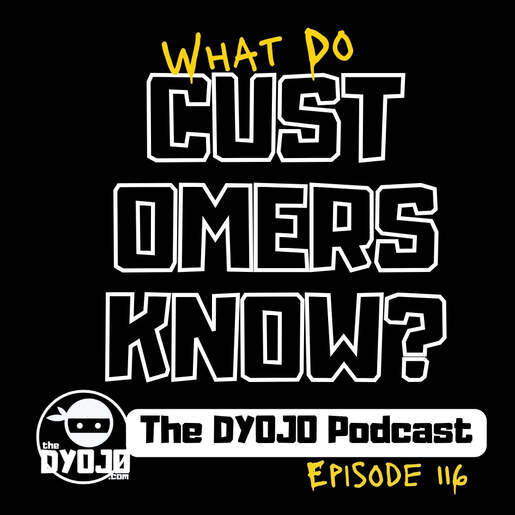
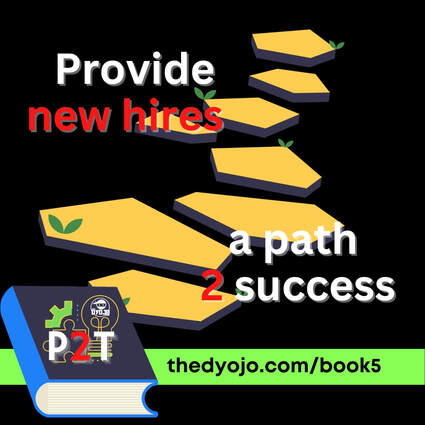
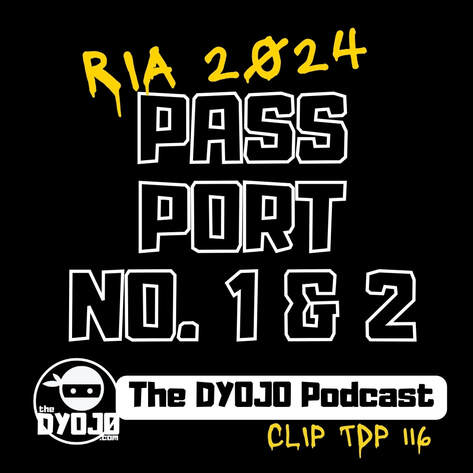

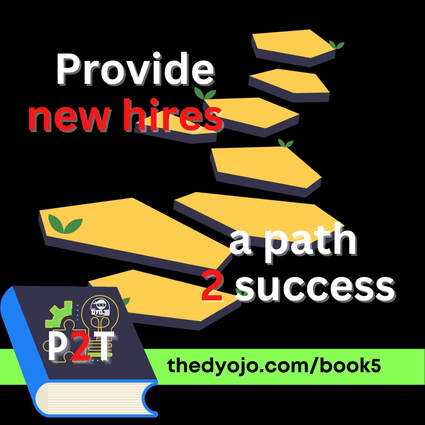
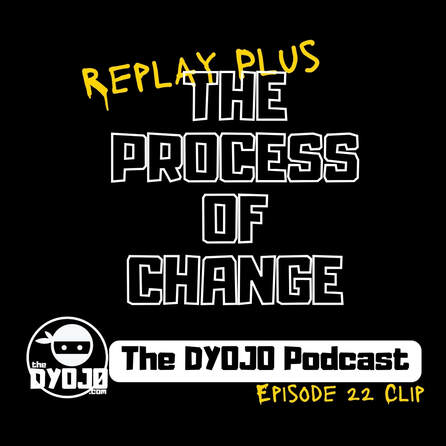
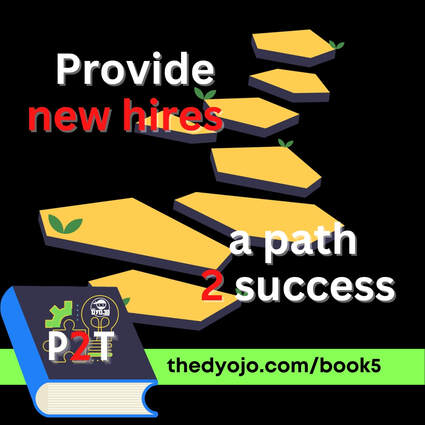
 RSS Feed
RSS Feed
